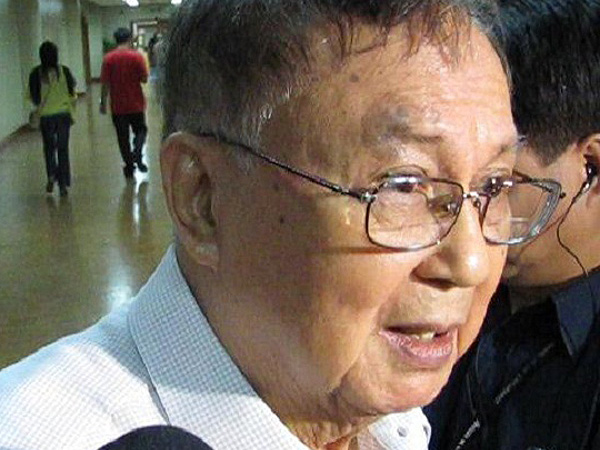Fine banks that take in dirty money too–Joker Arroyo
MANILA, Philippines—Unless Philippine laws penalize a bank that accepts cash deposits of questionable origin, it would be useless to approve amendments to the Anti-Money Laundering Law (Amla), a senator has pointed out.
Sen. Joker Arroyo said he would insist on a provision in the second bill of Amla amendments to include severe penalties for banks that take in dirty money deposits, saying that money laundering could not take place without the banks’ acquiescence in the crime to hide illegally acquired wealth.
Arroyo said banks in the United States had been meted out stiff penalties for accepting dirty money deposits.
The Philippine government should take its cue and do the same, otherwise, Arroyo said, amendments to the Amla would just be regarded as a pallid attempt to placate the global-based Financial Action Task Force (FATF) which monitors terrorist financing and money laundering around the world.
The FATF had warned that the Philippines would be included in its blacklist unless it amended and put more teeth into its current Amla.
Inclusion in the blacklist would make it more difficult for Filipinos to remit or receive funds from overseas.
Arroyo said that at present, the Anti-Money Laundering Council (AMLC) freezes the deposits of an individual suspected of laundering cash through banks.
“How about the bank that accepted the money? That is crucial. The AMLC says the bank should not be penalized, only the owner of the dirty money. But laundering would not have taken place if the bank did not accept the money in the first place,” Arroyo said.
The senator noted that banks are supposed to follow a “know your client” policy that requires its officers and employees to know the background of their depositors.
He said the rule becomes more necessary “if very big amounts being deposited are not commensurate to the financial standing of a depositor.”
“We cannot make it easy for a money launderer to hide his loot,” he said.
Arroyo lamented that the AMLC would rather look the other way when it explains that banks also have to adhere to a rule that protects their depositors.
Arroyo noted that banks in the US found accepting dirty money are first made to explain why they accepted the deposit. Then they are meted out penalties for repeated infractions.
Arroyo e-mailed to the Inquirer a list showing the fines meted out to banks in the US that accepted dirty money. These include HSBC which paid $1.9 billion (P75 billion); Chartered Bank, $667 million (P26 billion); ING, $619 million (P24 billion); Credit Suisse, $536 million (P21 billion); ABN AMRO, $500 million (P20 billion); Lloyds, $350 million (P14 billion), and Barclays, $298 million (P12 billion).
Arroyo recalled that the AMLC recently announced it had collected P3.1 million—about P250,000 a year—in penalties from local banks in the last 12 years.
“You can imagine that for the past three years the total of penalties paid by American banks was $190 billion. That translates to P7.8 trillion. So why should the AMLC protect our banks,” he said.

